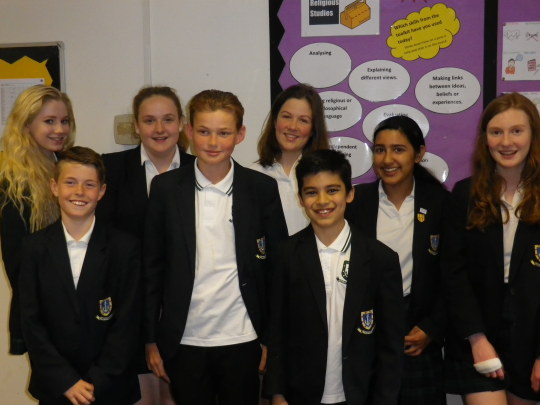Phew! You're half a term in. By now you're starting to get a picture for how the rest of the year will pan out, just about, and started to establish the priorities now the initial mayhem has died down.
You're also somewhat able to name the Y7s - definitely the one who's the spitting image of his brother (behaviour included), definitely the one who found day one too overwhelming to leave reception, and definitely the one clipping at your heels with persistent questions. The other hundred-odd are a work in progress, but getting there.
Unfortunately, the names you're most able to recall are the students who you're worrying about; the one's who you're concerned won't make the progress they need to in the long-term.
They can now find their way round, and they've figured out their timetable, but they don't seem settled, they're not knuckling down, and they're struggling with the academic nature of secondary.
So, what to do?
1. Start to talk to parents
It's the start of their secondary career, so you have a really good, genuine excuse for getting in touch with parents and engaging them positively - you want to keep them up to date with how their child is getting on, and what they can do to build a really strong platform right in Y7.
Build it up slowly - don't dive in with a 'meeting', but start with a text, a phone call, an informal catch up at the gate. And keep it positive. Suggest little things they can do to support in some of the areas you're worried about (e.g. 'you can ask about their english lesson and what they're reading when they get home').
2. Coach the individuals
Like (1), this about starting small. Grab <5mins with one of the students you're worried about and have a quick, supportive chat with them. Think of it like a sports coach or football manager pulling their player to the side-line for a second.
What has been your favourite part of this week? What have you found hardest? What could you do differently next week to make it less hard / less likely to happen again? What could I do to help you with that?
Repeat this regularly enough, and hopefully you'll notice them making changes around school. They'll also know that they've got a supportive adult in their corner - so win, win.
3. Enlist the experts
The experts being older students from within your own school. They have a specific and recent knowledge of what it's like to start at your school - what it's like to wear the uniform, how to adjust to the homework, how to interpret the first English text. That knowledge isn't available anywhere else! So the key will be to power it up in the most effective and genuine way you can.
Have you got specific subject prefects, or stand out students who you can ask to help? Are there some older students who you think could use a leadership role to develop themselves?
At Franklin Scholars we have our leading peer-coaching programme, as well as a range of ways we can support you with this one, so get in touch if you'd like to make the most of peer-tutoring and mentoring in your school.
4. Cross-phase CPD
This one's more of a long term one, I'm sorry. But it's a goodie! Often Y7s can seem to arrive out of nowhere - and if they're not where you expected it's often tricky for teachers to know how to take a few steps back. What did they do in primary? How have they been taught previously?
Can you or your teachers get in touch with a local Y6 teacher? Can they visit? Can that teacher offer them specific advice and support about how that subject is being taught in their school?
Equipped with the expertise of an active primary teacher - you could be better placed to scrub up the basics of the Y7s you're most worried about.


